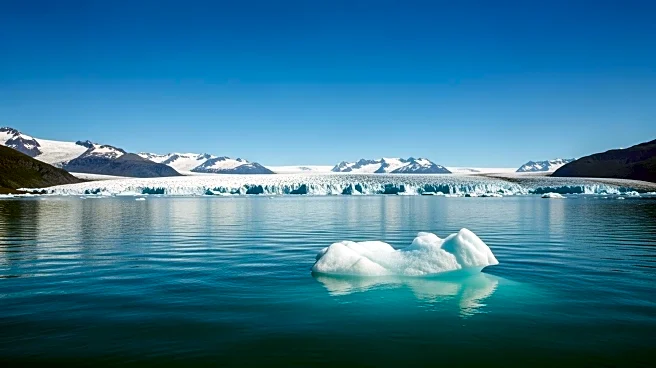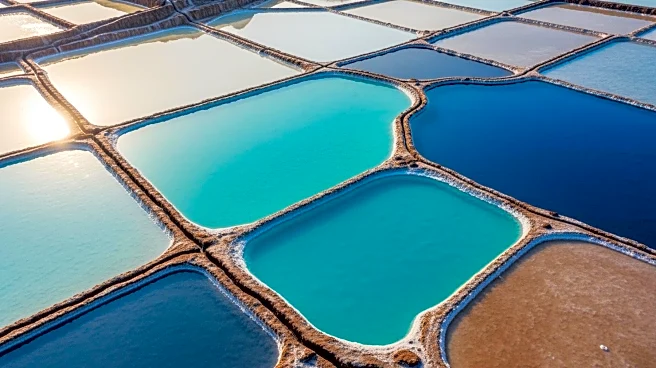What's Happening?
Researchers from the Institute of Science and Technology Austria have discovered that glaciers, which have been temporarily cooling the air around them, are nearing the peak of their self-cooling ability. This phenomenon, driven by katabatic winds, is expected
to reach its maximum in the 2030s. After this period, the glaciers will begin to heat up more rapidly, accelerating their melting process. The study, published in Nature Climate Change, highlights the temporary nature of this cooling effect, which has been observed in major glaciers worldwide, including those in the Himalayas. The research team, led by Francesca Pellicciotti, utilized a comprehensive dataset from 350 weather stations on 62 glaciers to model future projections, indicating that the cooling effect will reverse as glaciers continue to lose mass.
Why It's Important?
The impending end of glaciers' self-cooling effect has significant implications for global climate change and water resource management. As glaciers melt faster, they contribute to rising sea levels and reduced freshwater availability, impacting millions who rely on glacial meltwater. The study underscores the urgency for global action to curb emissions and manage water resources effectively. The loss of this natural cooling mechanism could exacerbate global warming, leading to more severe weather patterns and environmental challenges. The findings emphasize the need for coordinated climate policies to mitigate the effects of climate change and protect vulnerable ecosystems and communities.
What's Next?
The research suggests that while the glaciers' cooling effect provides a temporary reprieve, it is crucial to optimize water management strategies in the coming decades. Policymakers and environmental organizations are urged to focus on reducing emissions and implementing sustainable water management practices. The study calls for a shift in public consciousness towards the realities of human-caused climate change and the importance of proactive measures to limit further warming. As the glaciers' cooling effect diminishes, the need for effective climate action becomes more pressing to prevent irreversible damage to the planet's ecosystems.
Beyond the Headlines
The study highlights the ethical and practical challenges of addressing climate change. It questions the effectiveness of geo-engineering solutions like cloud seeding and glacier covering, advocating instead for comprehensive climate policies. The research also points to the broader cultural shift required to address climate change, emphasizing the importance of public awareness and global cooperation. The findings serve as a reminder of the interconnectedness of natural systems and the far-reaching consequences of human activities on the environment.















